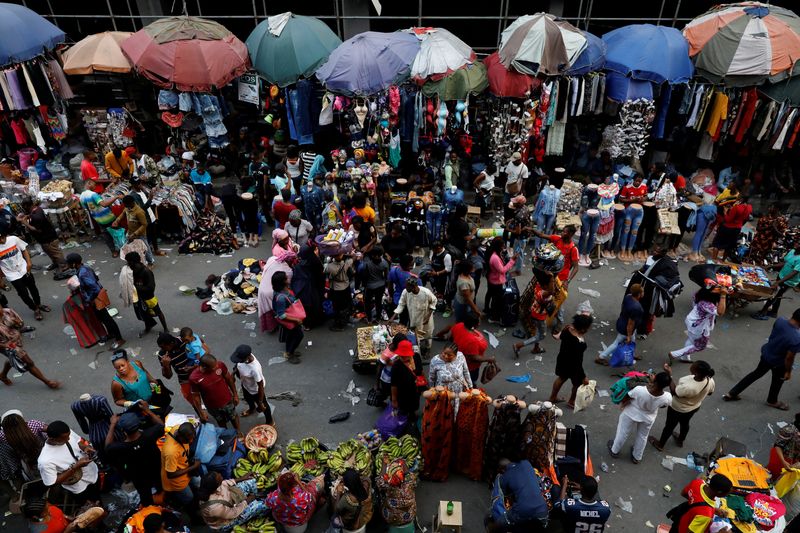By Chijioke Ohuocha
ABUJA (Reuters) -Nigeria's economy grew by 2.54% in the third quarter, largely steady from the 2.51% in the second quarter, data showed on Friday, as the oil sector contracted at a slower pace while the impact of government reforms aimed at boosting output were yet to take effect.
Central bank Governor Olayemi Cardoso, who outlined his policies at a meeting with bankers late on Friday, said that Africa's largest economy could grow by 3.9% in the fourth quarter as government reforms take effect.
President Bola Tinubu promised during his inauguration in May to expand the economy by at least 6% a year.
Cardoso said the economy could expand in size to $1 trillion over the next seven years.
Tinubu has vowed to lift barriers to investment, create jobs and tackle insecurity. He has embarked on Nigeria's boldest reforms in decades to try to boost output, which has been sluggish for about a decade. But they have yet to impact growth.
"The performance of the GDP in the third quarter of 2023 was driven mainly by the services sector, which recorded a growth of 3.99% and contributed 52.7% to the aggregate GDP," the National Bureau of Statistics (NBS) said.
The NBS said the agriculture and industrial sectors, which create jobs, contributed less to GDP in the third quarter, compared with the same quarter a year ago.
Nigeria's dominant oil sector, which accounts for the bulk of government revenue and 90% of foreign-exchange reserves, contracted 0.85% in the third quarter, a rise of 12.6% from the second quarter when the sector shrank by 13.43%.
Daily average oil output stood at 1.45 million barrels per day (bpd) in the three months to September, up from the 1.20 million bpd in the same period last year.
Tinubu in May scrapped a costly but popular petrol subsidy and lifted currency controls, which he said was to save the country from going under.

But his actions have worsened inflation currently in double-digits, fuelling anger and frustration for a population grappling with a cost of living crisis. Tinubu has been under pressure from unions to offer relief to workers.
He has travelled to Asia, Europe, Middle East and the U.S. to promote investments to try to revive the economy rather than relying on borrowing.